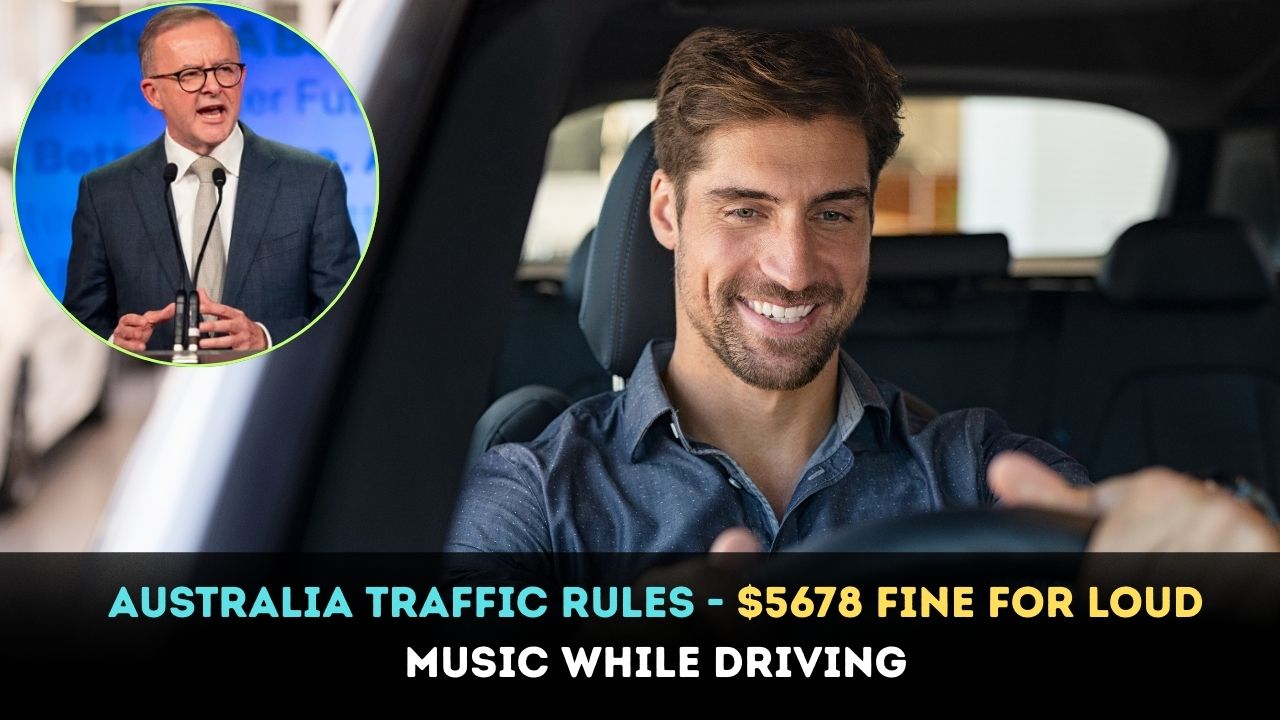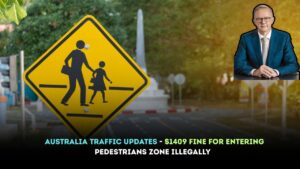Join on WhatsApp
Get the latest updates directly on WhatsApp – motivation, news & more!
While driving, playing loud music is now subject to a fine of up to $5,678 in Australia is, a reflection of growing concern regarding road safety and the increasing case of distraction caused by music. This concern is evident in the new laws passed. 2025 has seen new traffic rules, with perhaps the most substantial increase in fine value being the violation of playing music which now has a violation fine of $5,678. Ramping up its contradiction with other laws poipuvlted earlier on, breaching the new laws will serve equally to the out of court settlements as the fine serves the lawmakers.

Having a false sense of entitlement and abusing the public’s right to peace and public wellness comes with a great line of a potential public wellness standard purpose. This new wave along the gist of public policies guiding toward the concern and consideration of the public’s peace over individual’s inability to be civil. However, this measure still bears the contradiction. As with on other policies, breaching these policies serves equally on the out of court settlements and the fine serves the lawmakers, retaining the new laws to the idea of “welcoming the law and order”.
Let in addition to this, noise will caution public wellness standards purpose. This no doubt is a purposeful obstruction to a false sense of entitlement regarding the cover up in public places. This measures along with other public policies sans the noise obstruction and standard of dealing with device civilization disabusers. ‘Disabuser’ still has no meaning in human law under civility, termed as socially accepted ‘not disabuser’ laws.
Differences Between Geography in Enforcement and Fines
While other states might impose lower fines and penalties, New South Wales has the highest fines in the country. An example is in Queensland, where certain loud music offences are classified as “hooning” and are subject to fines as well as vehicle impoundment. The Australian Capital Territory (ACT) is similarly positioned as it imposes heavy fines on vehicle stereo users for their noise. These fines, particularly for progressive offences, are steep, and are coupled with vehicle demerits, confiscation , and shuddering points.
Safety and the Impact of Music
Playing music in vehicles is also strongly discouraged as it has been proven to worsen the already bad conditions of the road. In the example of stereo usage, arise the tendency to tune out of important sounds, instructions and signals and is counterproductive. When the surrounding noise is arrested to a minimum, the risk of accidents are heightened, and reaction slower when the head is in a mobile device. These new legislations are designed to not only reduce the noise pollution emanating from the vehicles, but also enhance the driving discipline amongst the violators.
Technologies of Enforcement and Relevant Considerations
Within Australia, authorities are rapidly utilizing new artificial intelligence noise and surveillance technologies in industry and rule enforcement. Automated systems can ascertain sound volume coming from moving vehicles and automatically dispatch fines and/or warnings. Such technological solutions enhance enforcement by providing greater efficiency and uniformity in policing noise violation offenses and utilizing unequivocal thresholds to exemplify noise transgressions.
What Drivers Need to Understand
Drivers are encouraged to keep volumes of vehicle sound systems at reasonable levels and observe local noise sanctions to evade charges and penalties. Conversely, reducing volume assists in complying with the law, improves driving and lessens the nuisance created to the community. The amendments of 2025 are intended to strike a compromise between the unfettered enjoyment of music and the attainment of reasonable road safety and public order.
In Summary
Drivers caught blasting music risk a fine of AUD 5,678, an indication of Australia’s determination to control noise pollution whilst driving and to enhance road safety. Additional technological surveillance and stricter policing make the new amendments to existing laws restless. Driving with sound levels above the legally permissible limits is considered reckless. These laws seem to aim at providing a quieter and safer driving environment.


